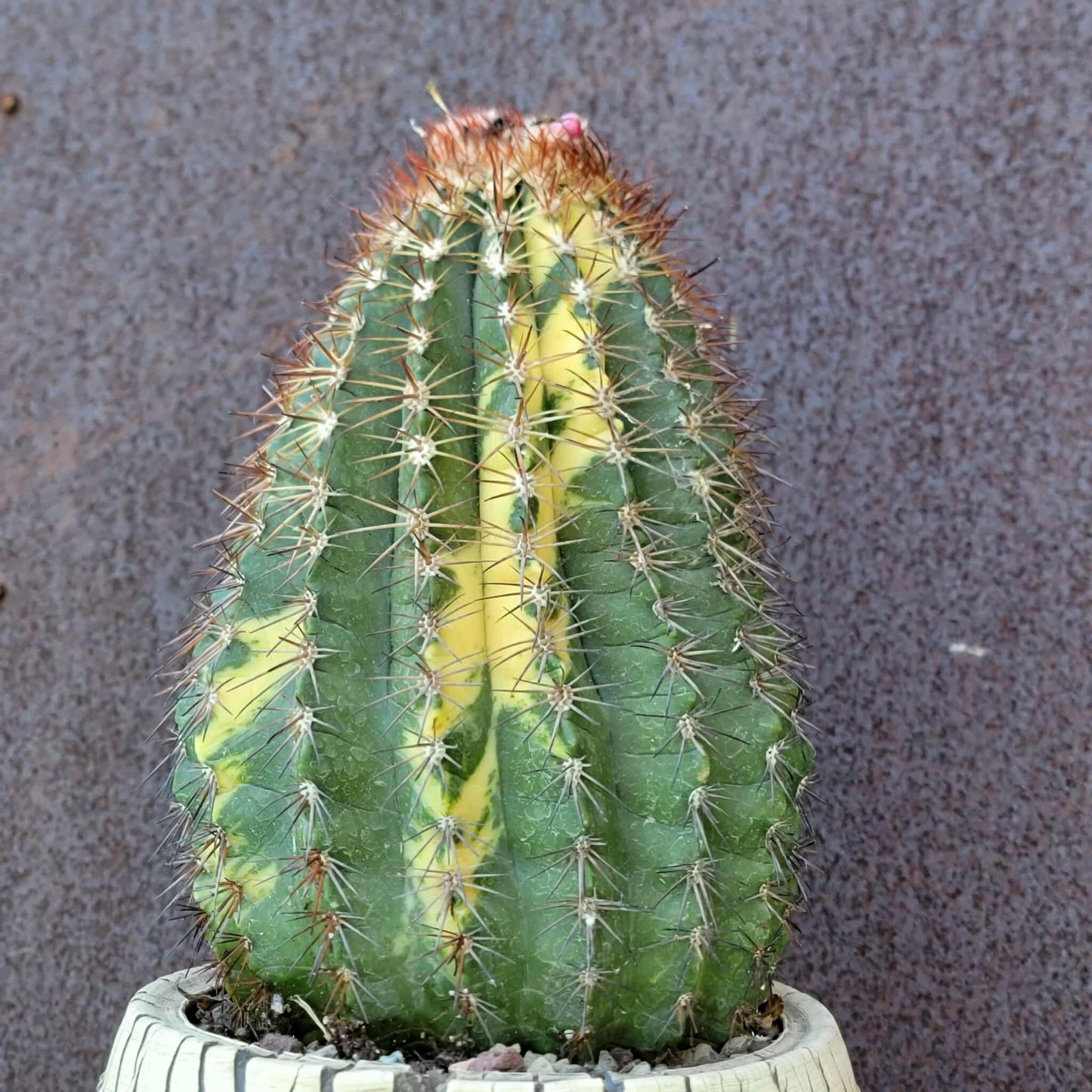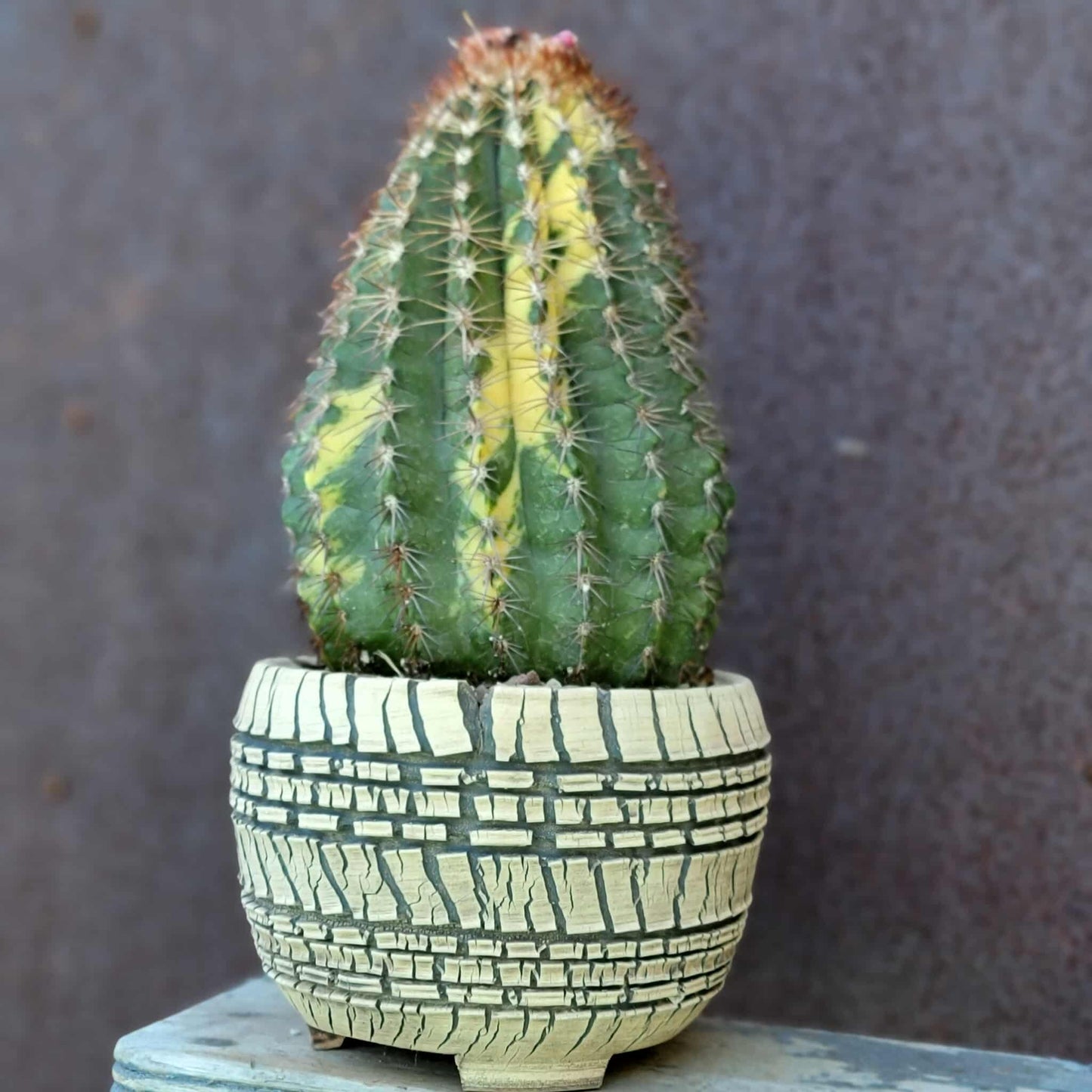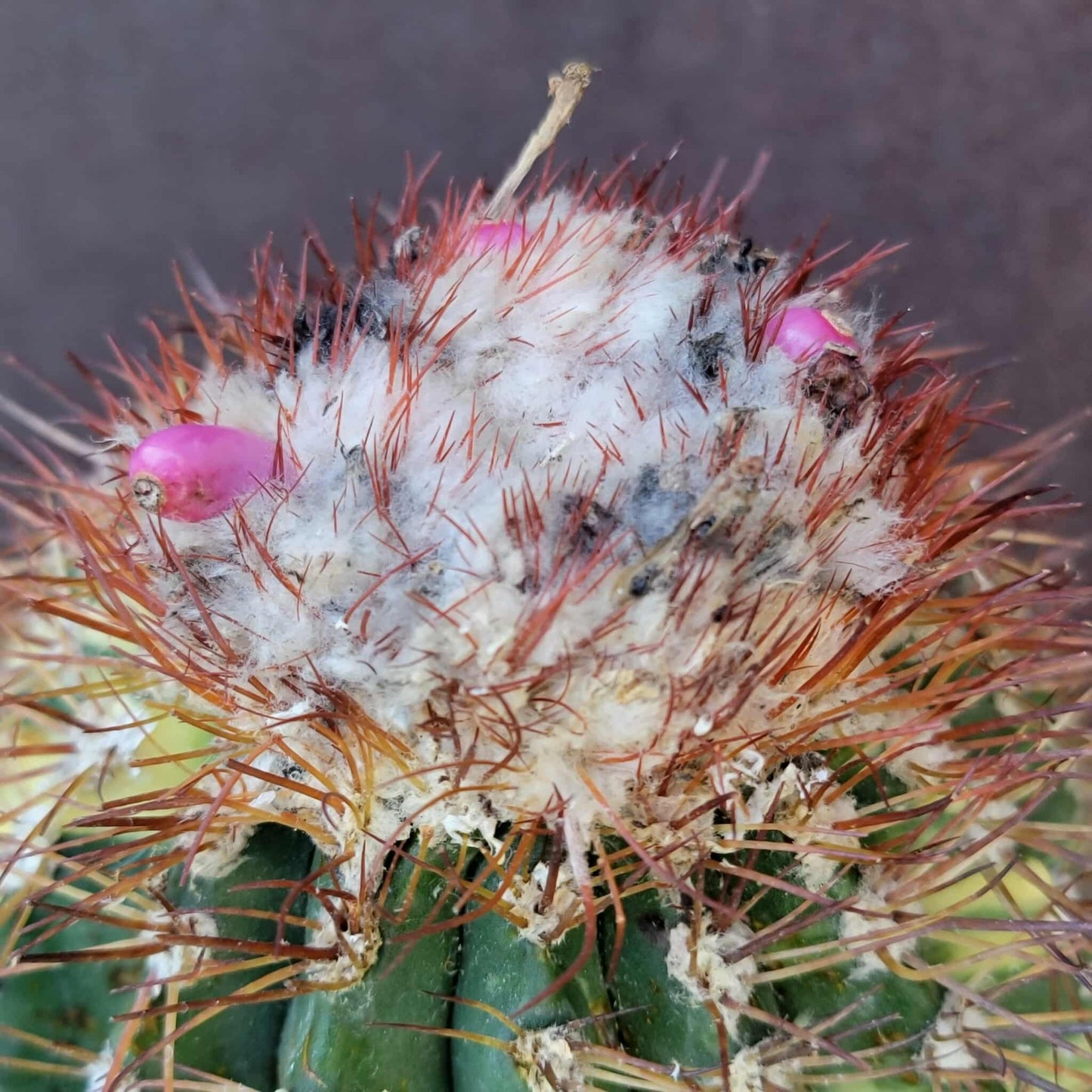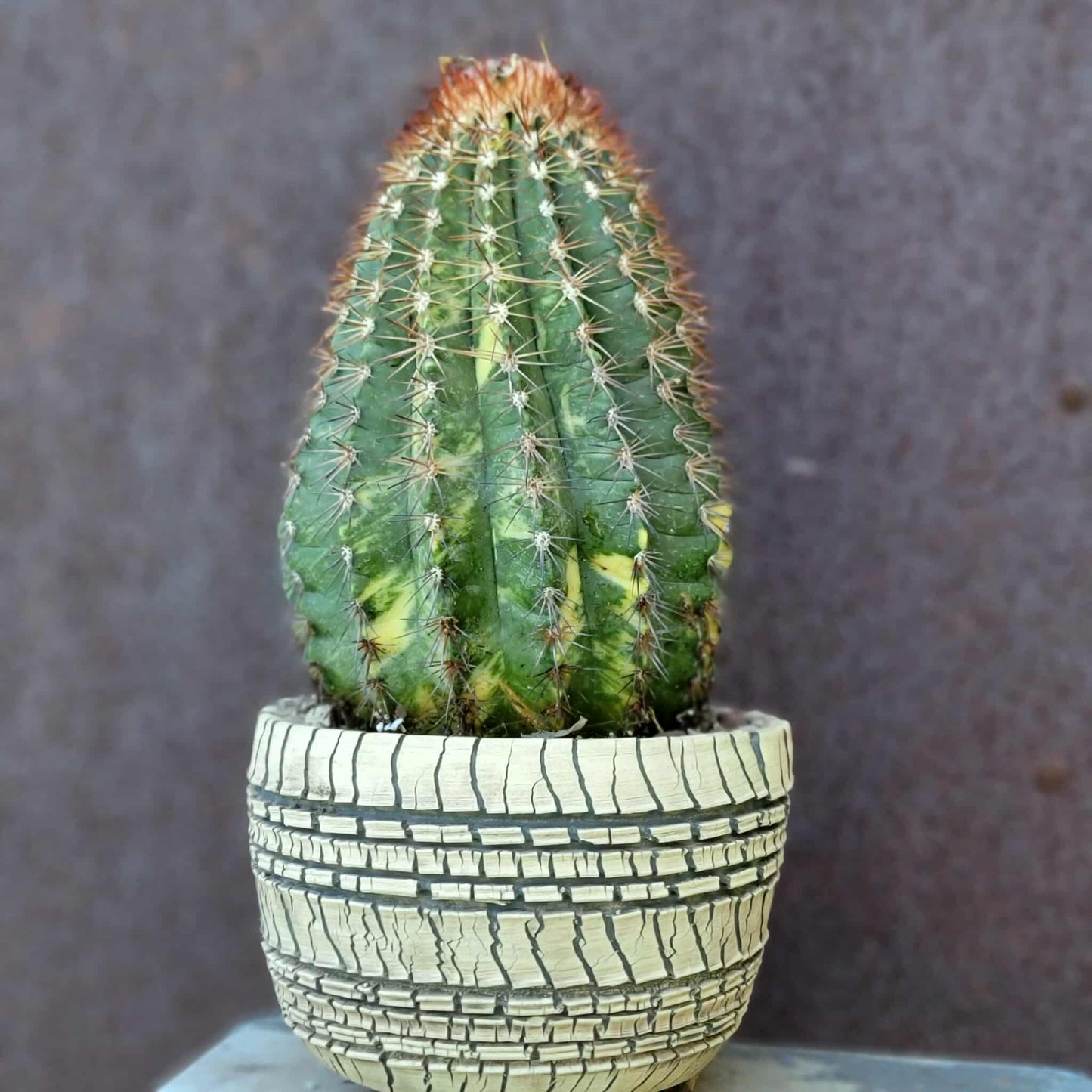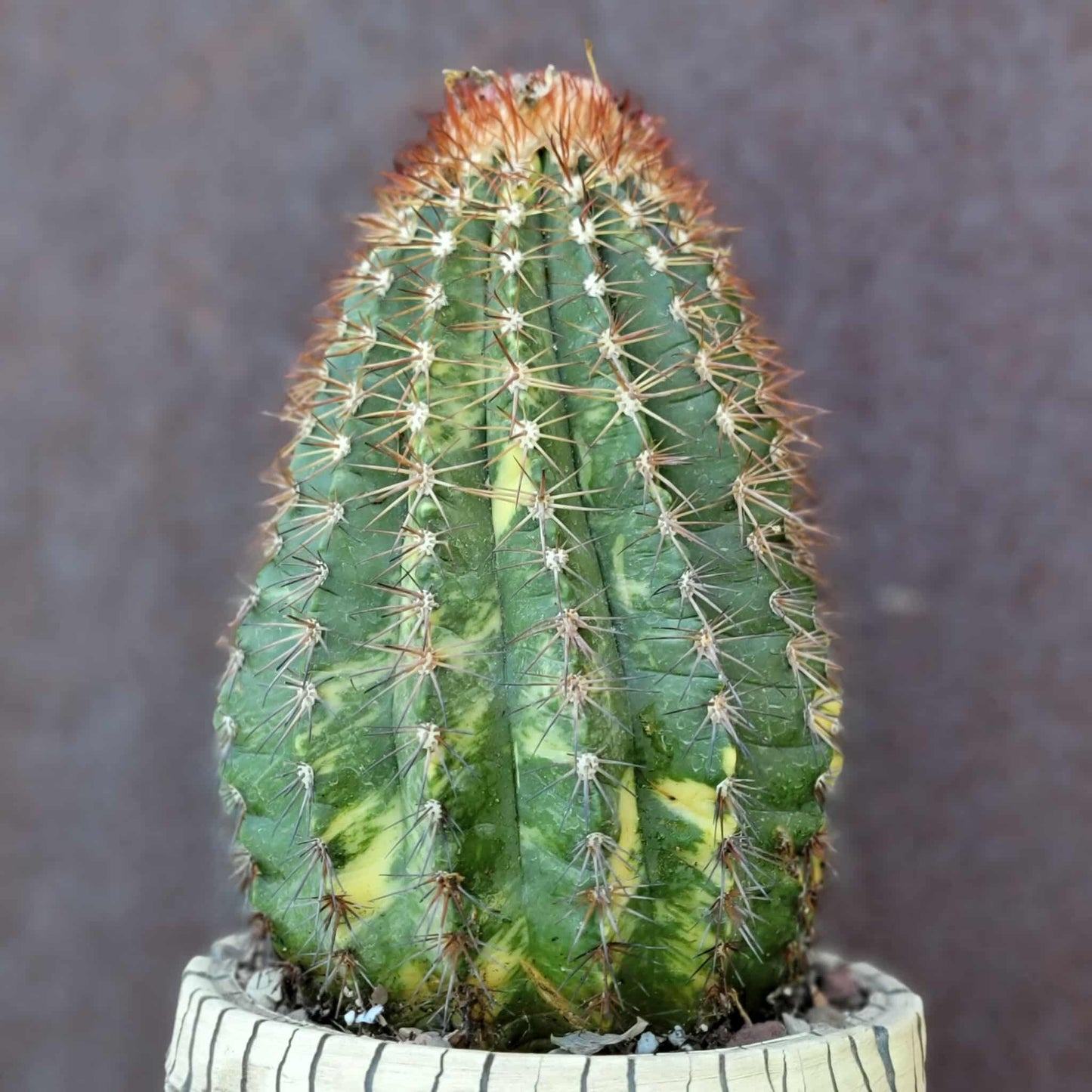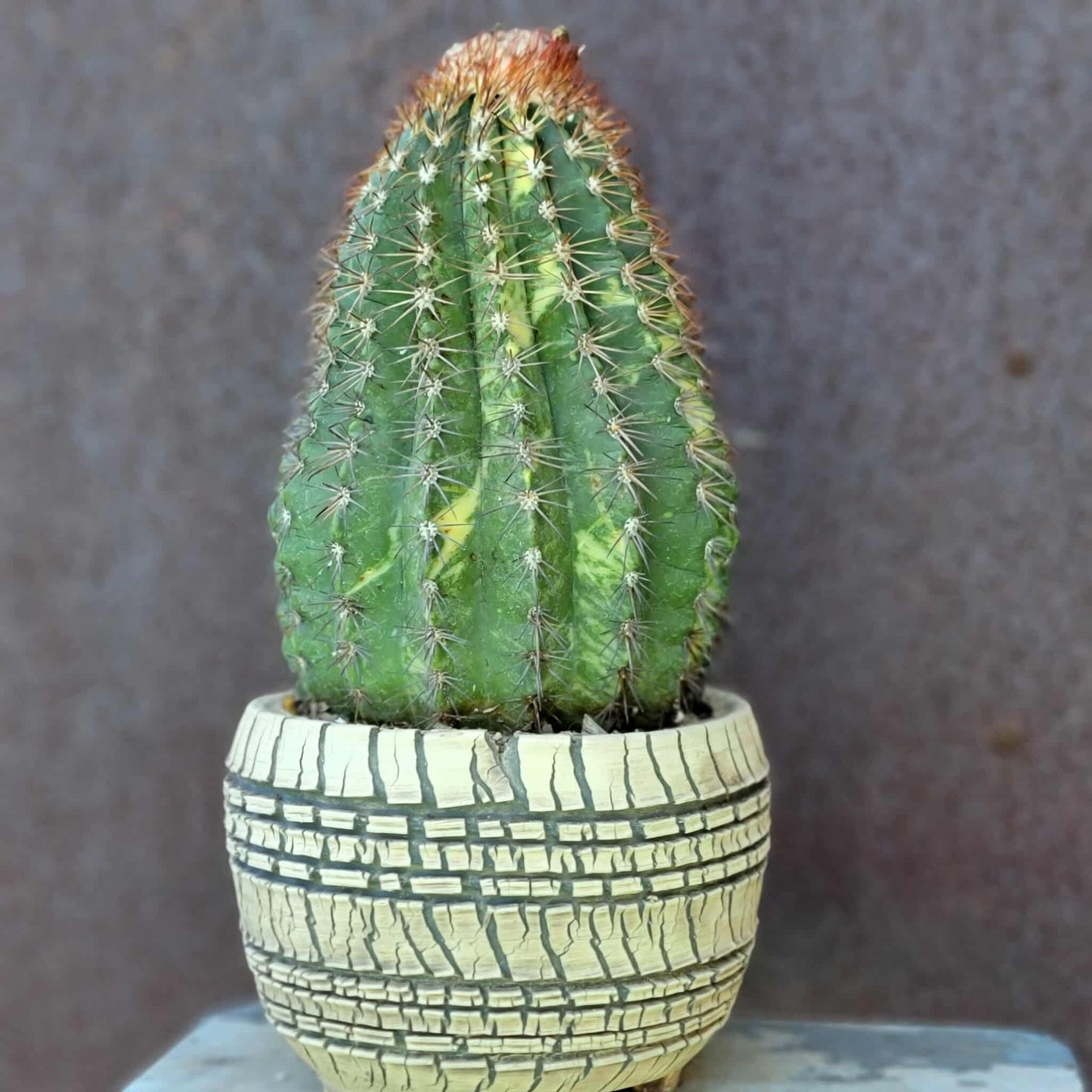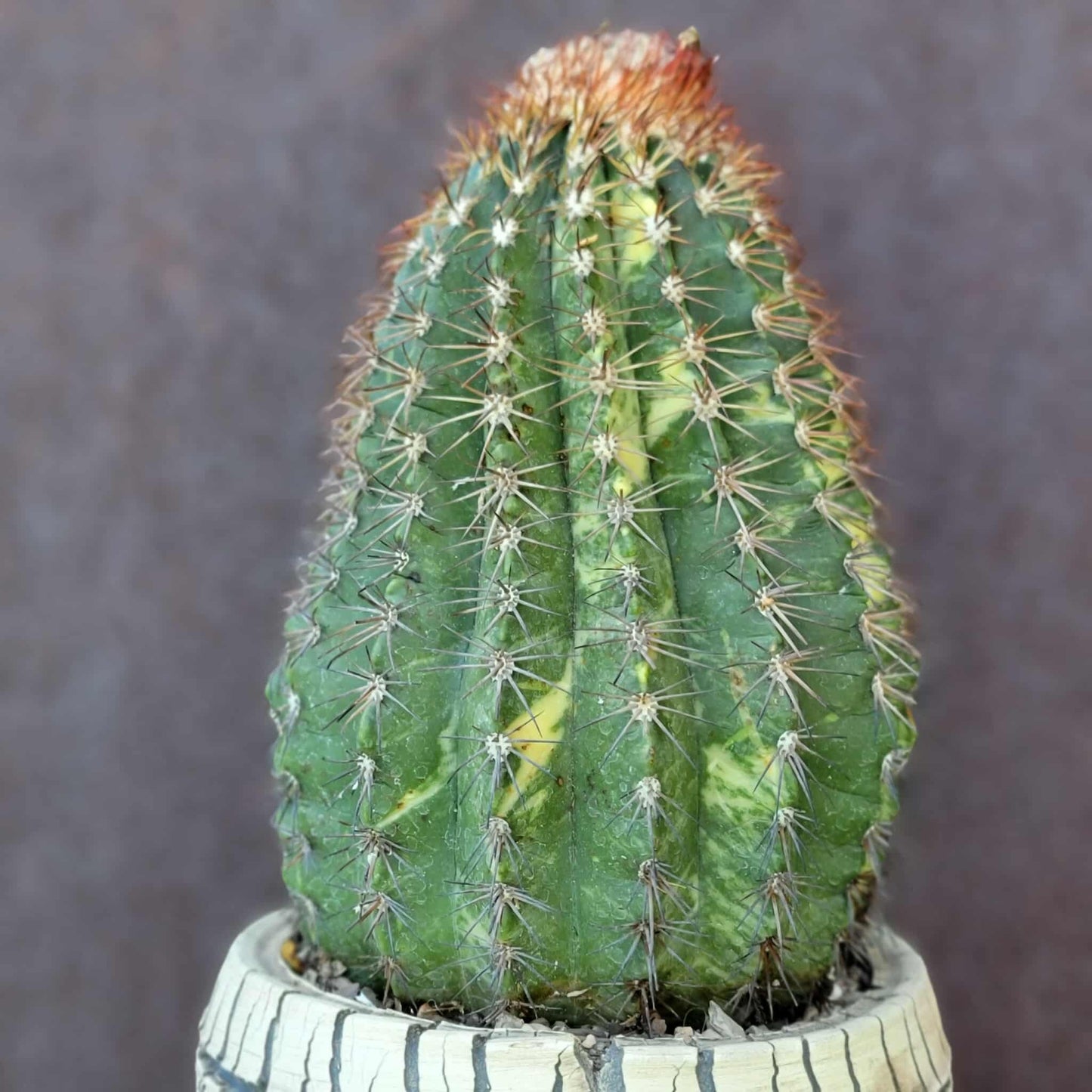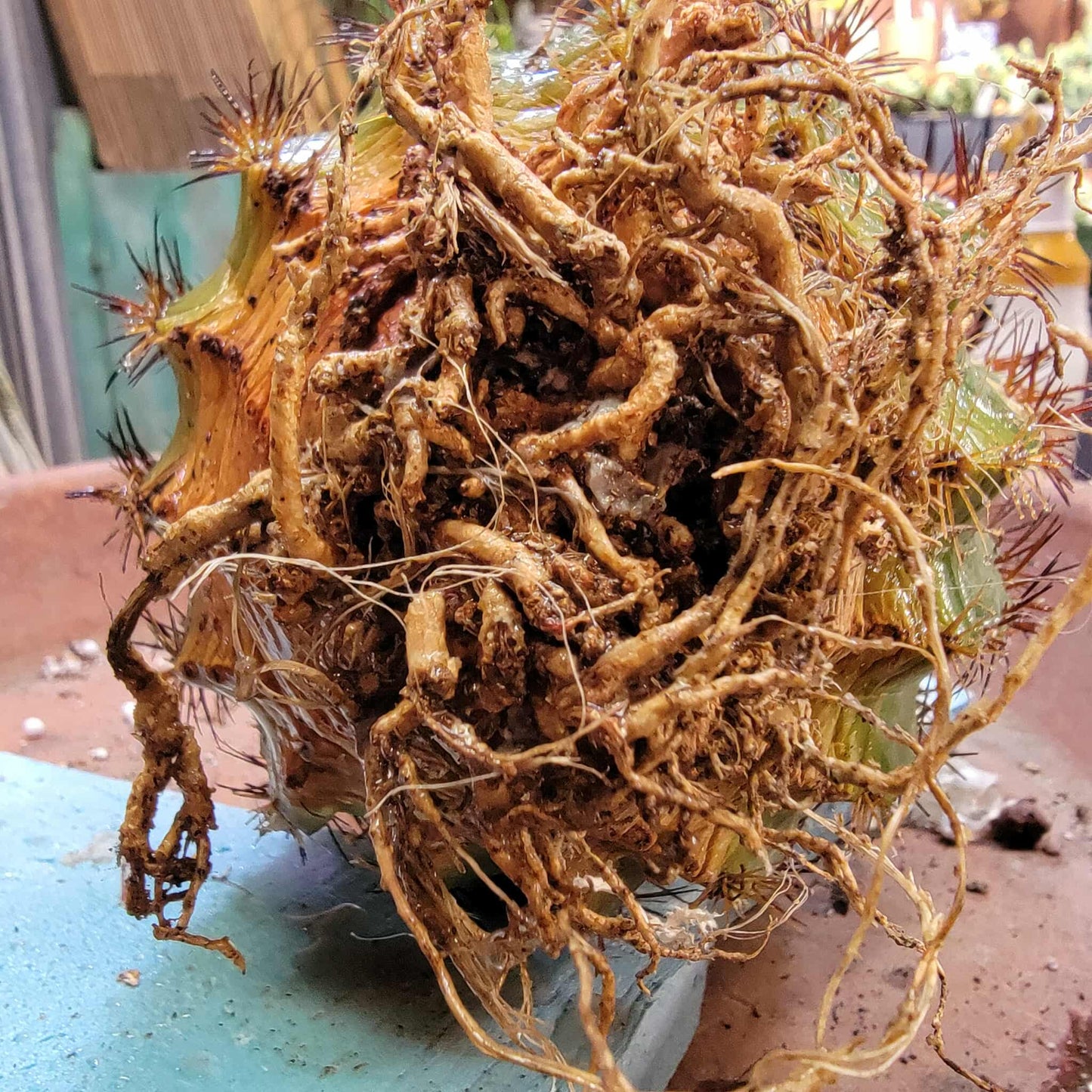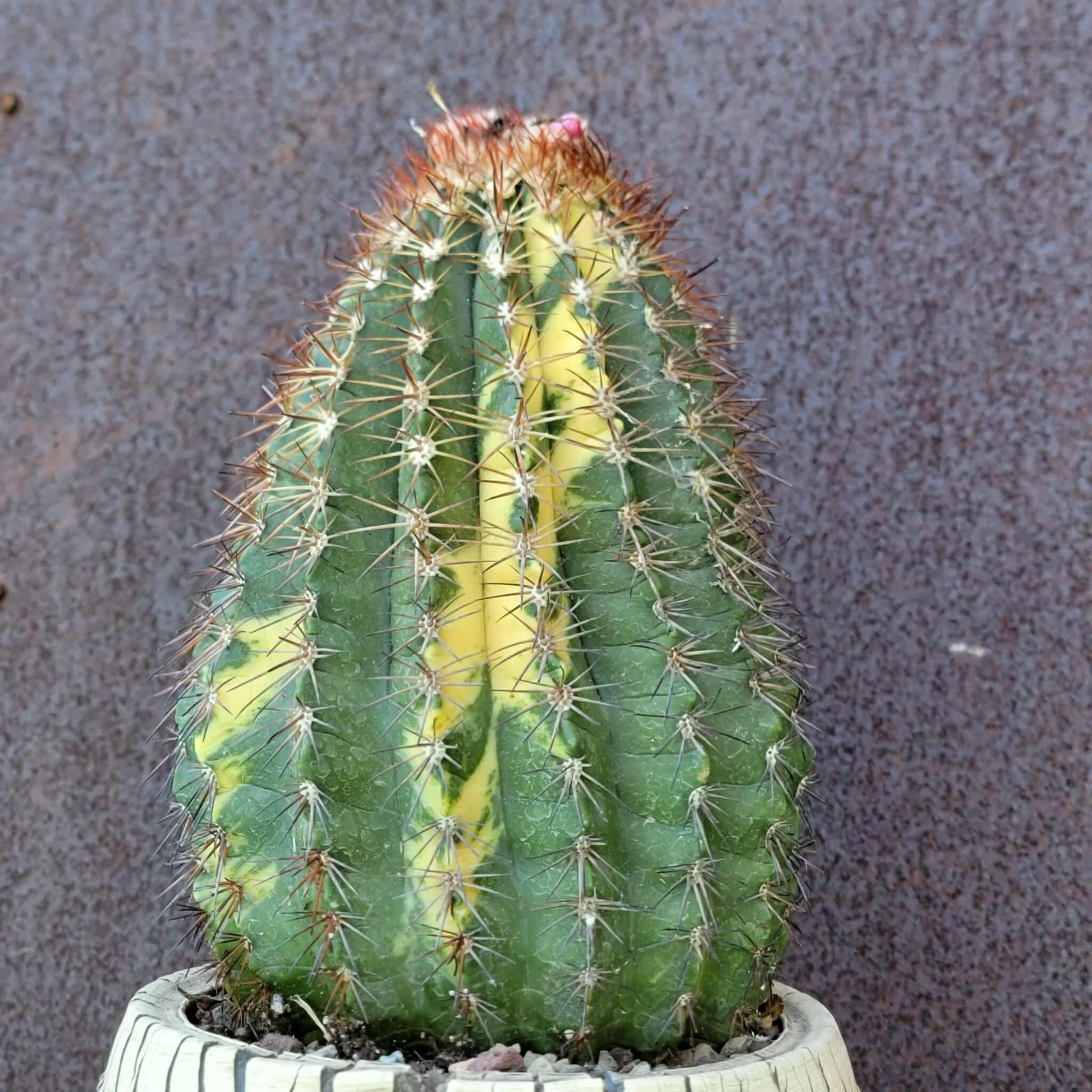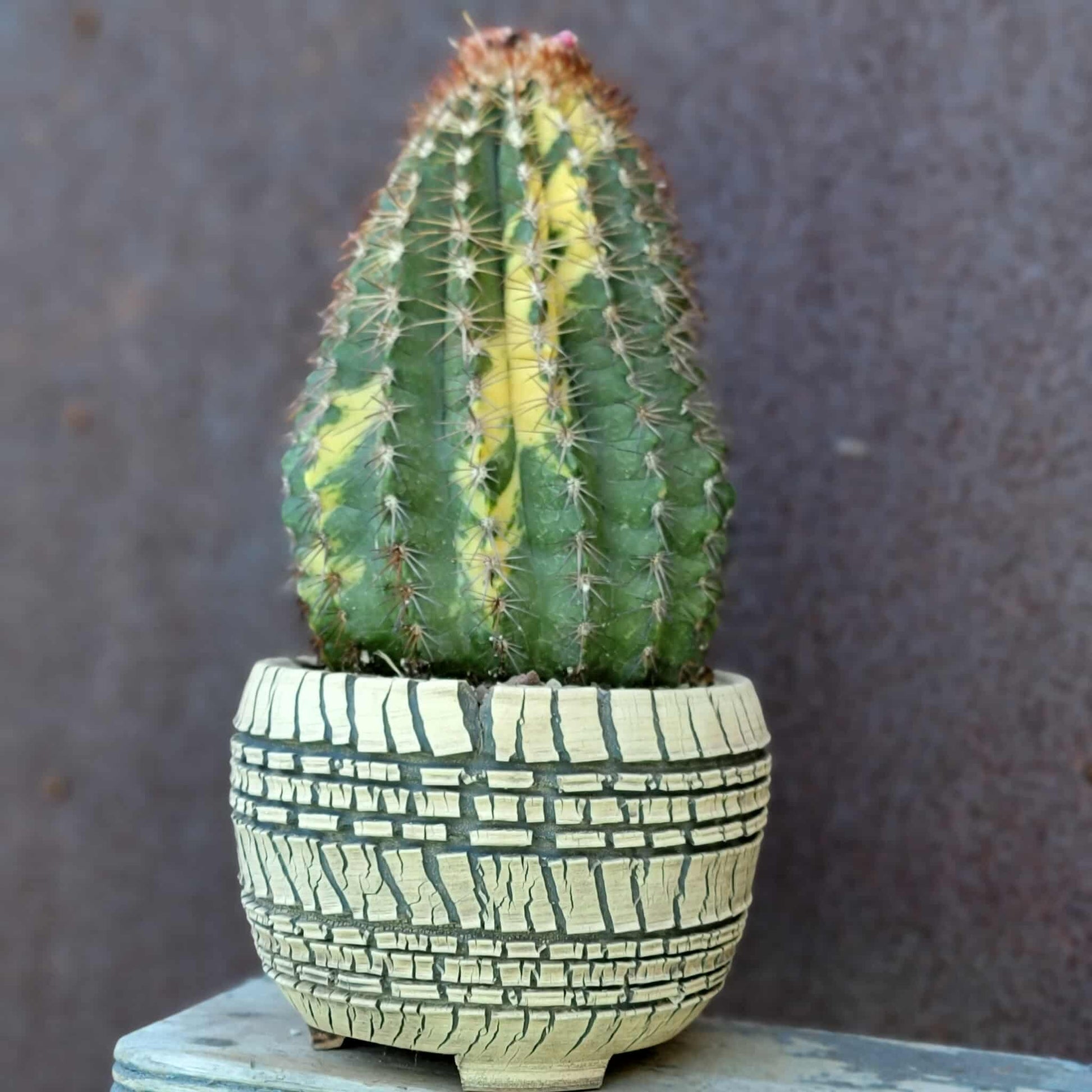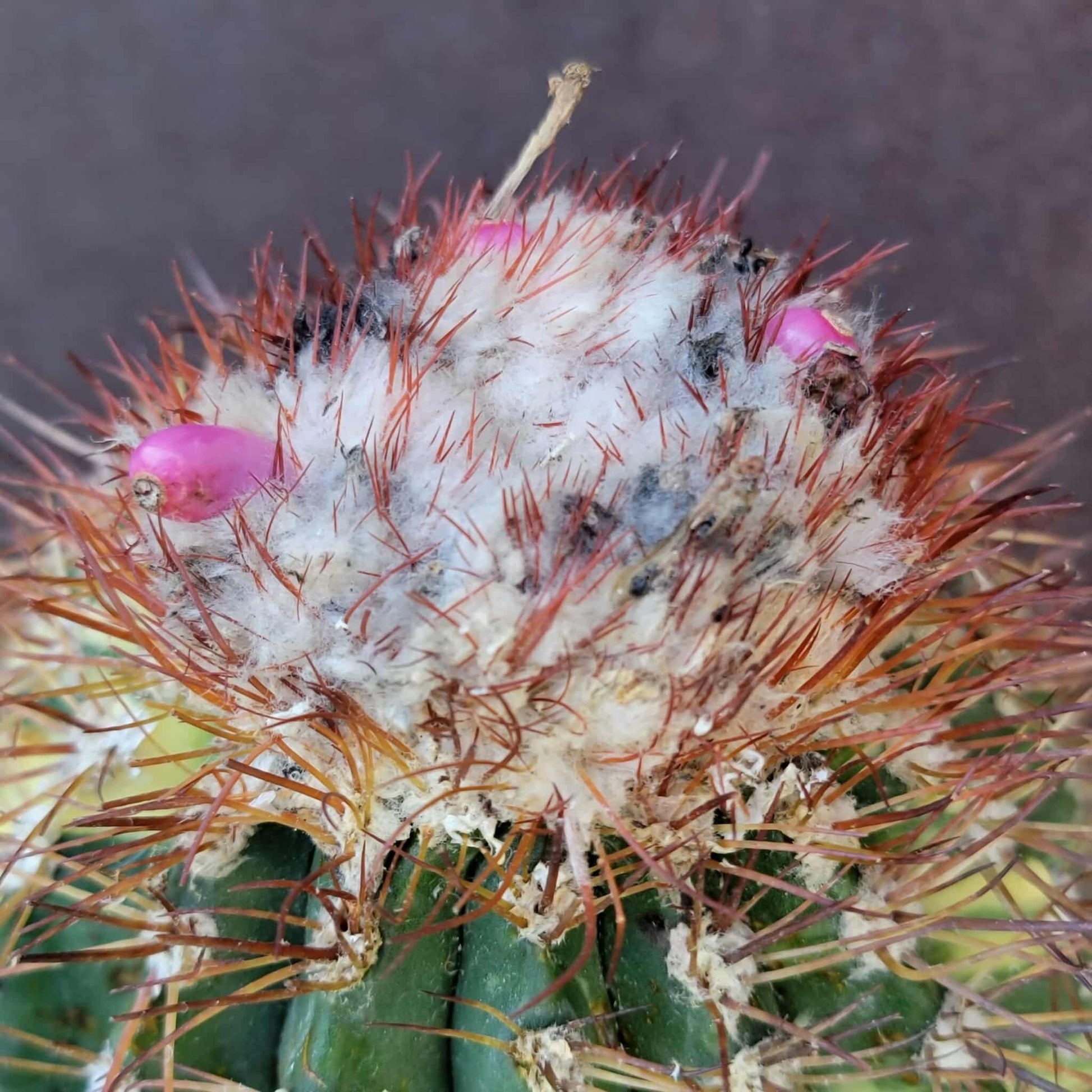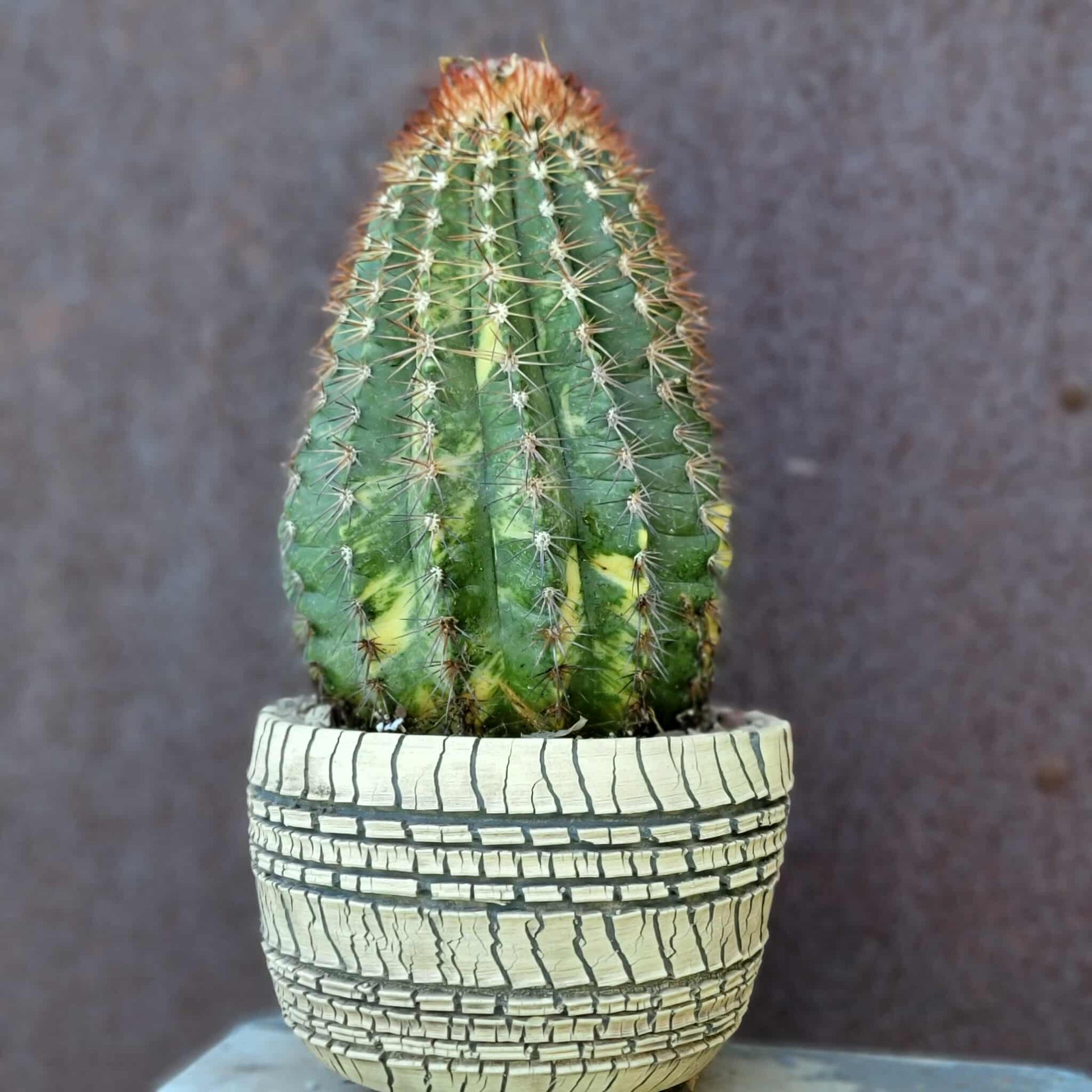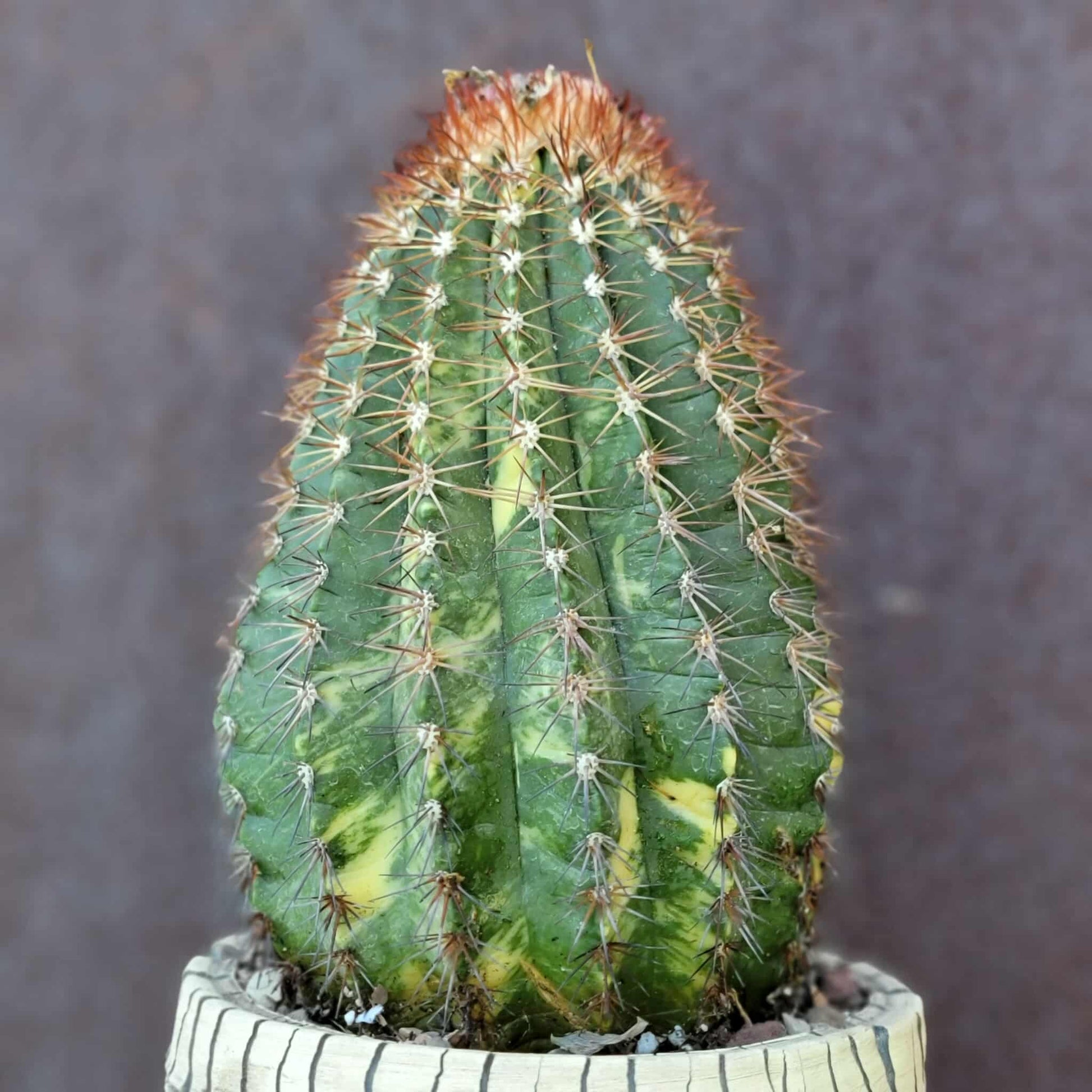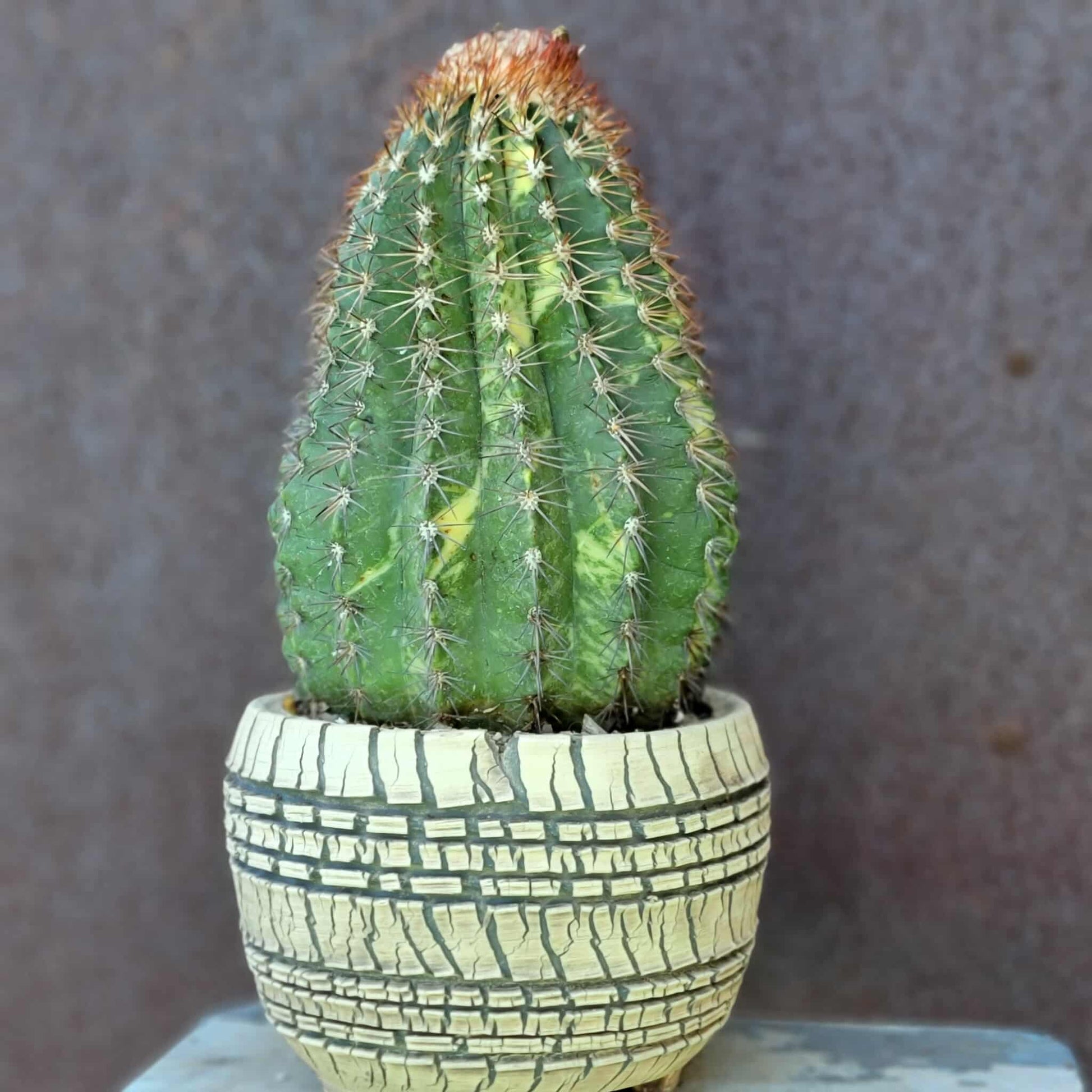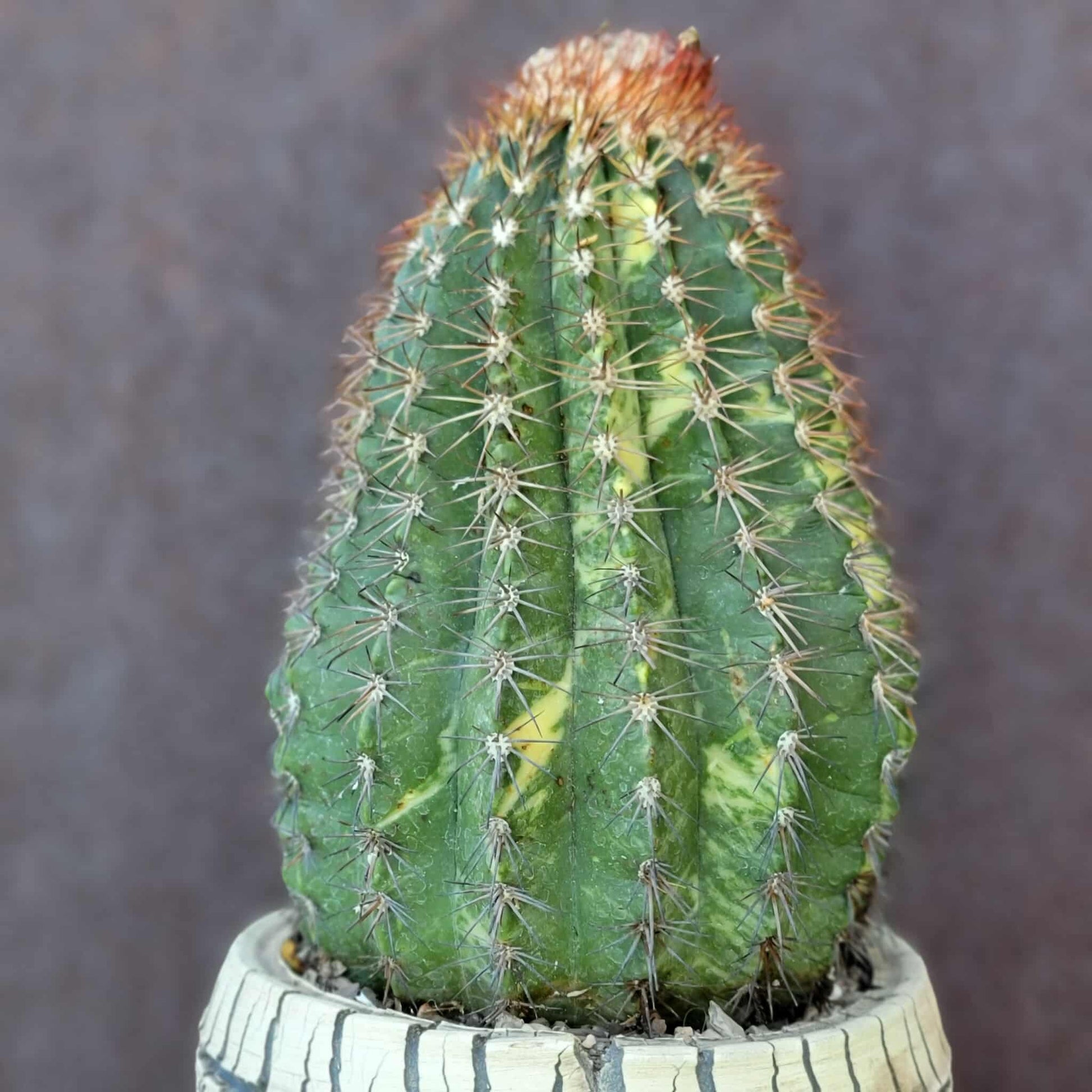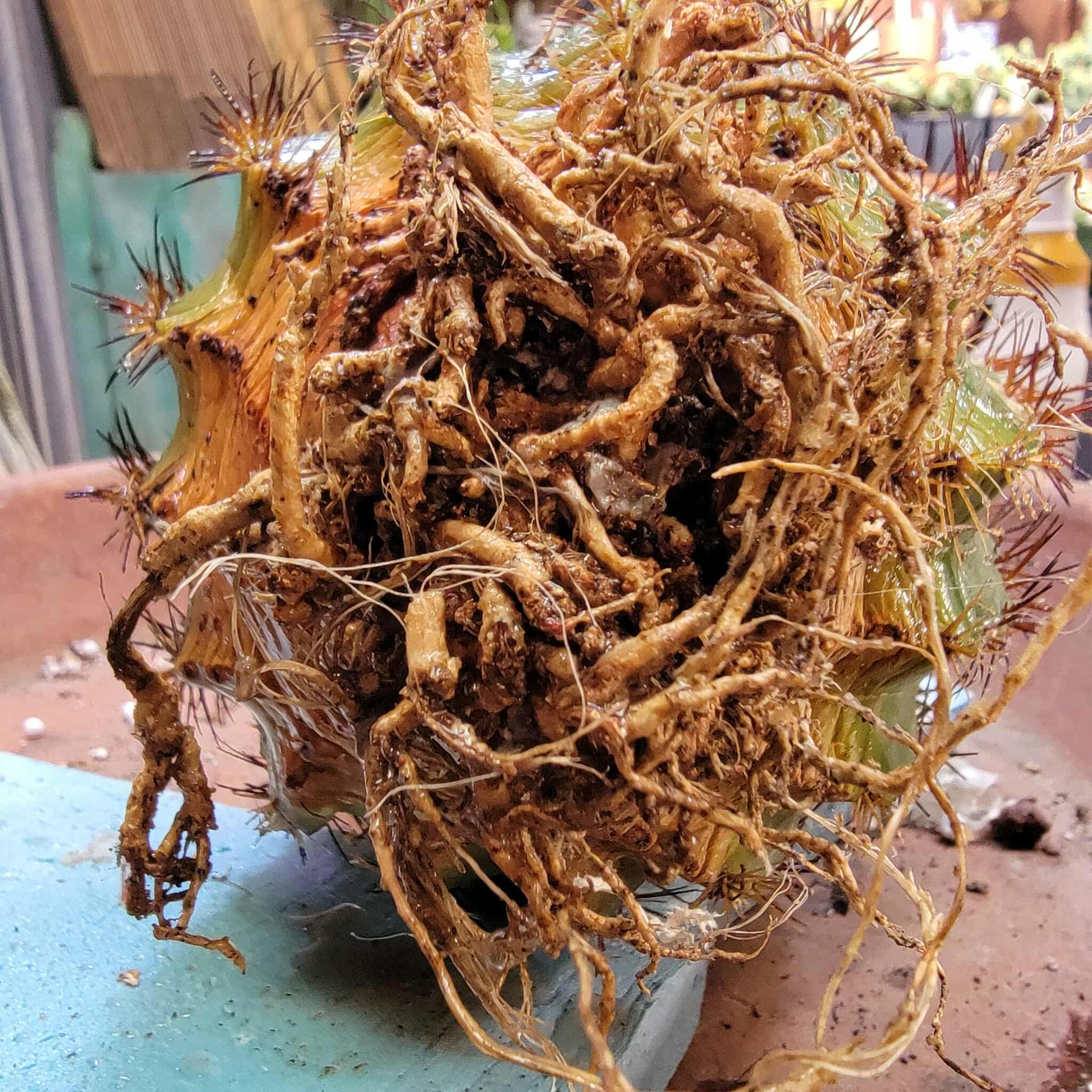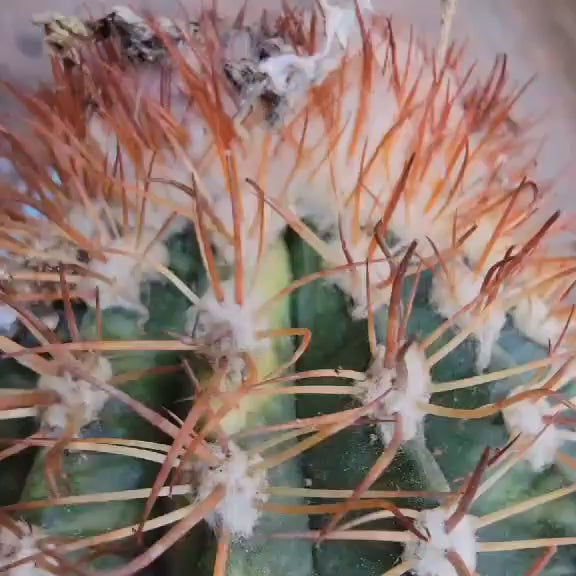Shangri-Ha Cactus Ranch
Melocactus broadwayi variegata – Variegated Turk’s Cap Cactus
Melocactus broadwayi variegata – Variegated Turk’s Cap Cactus
Couldn't load pickup availability
Melocactus broadwayi variegata – Variegated Turk’s Cap Cactus
You will receive this exact, BIG rare specimen!
Measures 9” tall above the soil line x 5.75” wide.
Roots as shown.
Showcased here in one-of-a-kind handmade pottery (sold separately).
Will be shipped bare root.
The Melocactus broadwayi variegata is a rare and visually striking variant of the Turk's Cap Cactus, known for its mix of light and dark green patterns on the stem. Unlike other Melocactus species, this variety is noted for its ability to produce pups (offsets) from the areolas on its sides. As a specialized and sensitive cactus, it is not recommended for beginner growers.
Key characteristics:
- Variegation: The cactus is characterized by areas of light yellow-green tissue mixed with normal green growth on its ribbed, conical to round stem. The distribution of the variegated pattern is random.
- Body: The main body is ribbed and can grow up to 8 inches (20 cm) tall and 8 inches (20 cm) in diameter.
- Spines: It features horn-colored spines that may have brownish tips. A central spine is typically surrounded by 8 to 10 radial spines.
- Cephalium: Once mature, the cactus develops a distinctive woolly, hat-like growth on its top called a cephalium. This is where the flowers and fruit are produced.
- Pups: This rare variety has the ability to produce offsets from the areolas on its sides, which is uncommon for most Melocactus species.
Care:
- Light: Requires bright light, such as a south-facing window. Insufficient light will cause the plant to stretch and lose its vibrant coloration.
- Water: As a tropical cactus, it needs more water than desert varieties but is also prone to rot. Water regularly during its April-to-October growing season, allowing the soil to dry out between waterings. Reduce watering to about once a month during its winter dormancy.
- Soil: Needs a very quick-draining soil mix to prevent root rot.
- Temperature: Melocactus broadwayi variegata is a warmth-loving cactus. It is sensitive to cold and should be kept above 54°F (12°C). The minimum temperature it can survive is around 46°F (8°C).
- Fertilizer: Feed with a low-nitrogen, high-potassium fertilizer once in the spring for non-cephalium plants. Once a cephalium has formed, you can feed more regularly every two months during the growing season. Avoid fertilizing in the winter.
Propagation:
The most reliable method of propagation is from seed.
- Sow the seeds in February or March, or indoors with consistent temperatures of 64–72°F (18–22°C).
- Cover the seed tray with glass to keep the soil from drying out.
- Since this variegated variety produces pups, careful removal and replanting of these offsets may also be possible. Let the pup form a callus for a few days to a week before planting.
Other notes:
This variety can be very finicky, and beginners often struggle with its care. Its weak root system makes it particularly susceptible to root rot if overwatered. Repotting can be stressful and may cause the cactus to take a long time to re-establish.
